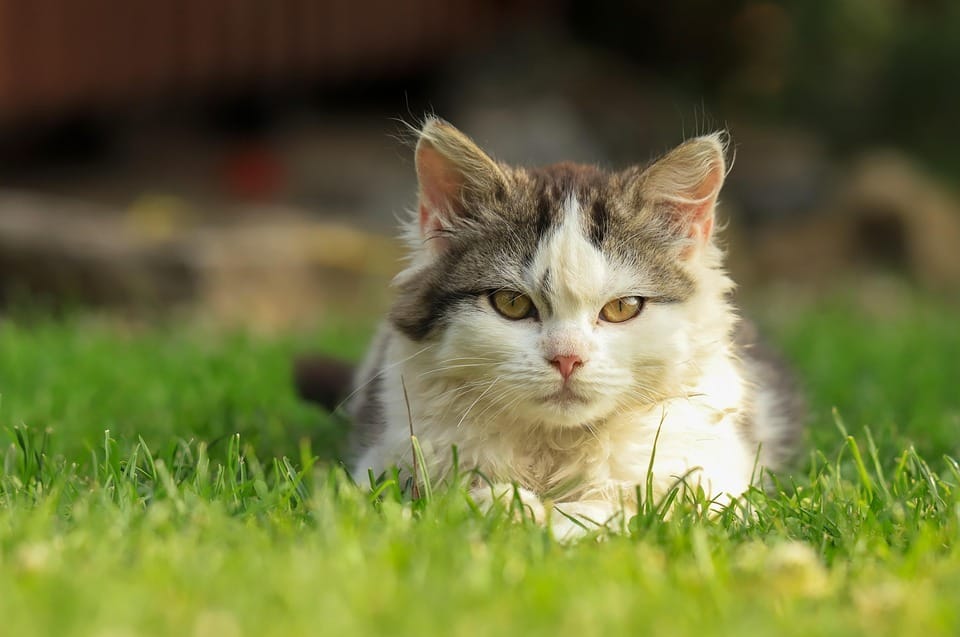- Your Pet's Wellbeing
- Posts
- Can You Make A Mean Cat Nicer?
Can You Make A Mean Cat Nicer?
Yes, With Patience!
While cats are known to be aloof and independent in nature, sometimes a cat may come across as “mean.” Your cat might hiss, swat, scratch, or avoid people altogether. Understandably, you might wonder if you make a mean cat nice. The good news is that in most cases, yes, you can help a cat become friendlier with patience, understanding, and the right approach.

Why Is My Cat So Mean?
You might bring a cat home that you adopted, or your kitten might grown up to be not as friendly as you’d like, but there is usually a reason behind this not-so-nice behavior. However, before trying to change your cat’s behavior, it’s important to understand why your cat acts aggressively.
A “mean” cat is usually reacting out of fear, stress, or past negative experiences. Some cats may not have been socialized properly as kittens, while others may have gone through trauma or lived in environments where they didn’t feel safe. Medical issues, such as pain or illness, can also cause sudden aggression in cats.
Your cat might be mean to you or others, but it can also cause friction in your home if you have another cat.
Rule Out Any Medical Issues First
If your cat’s personality seems to have changed suddenly, the first step is to schedule a vet check. Cats often hide discomfort, and aggression can be a sign of pain from conditions like arthritis, dental problems, or urinary tract infections. Ruling out health concerns ensures you’re not misinterpreting your cat’s behavior when they might actually just be hurting. Once you know your cat is healthy, you can focus on behavior and trust-building.
Can You Train a Cat to Be Nice?
If you’re wondering if you can make a mean cat nice, it helps to think of it less as “training” and more as building trust. Cats are not motivated the same way dogs are, but they do respond positively to consistent kindness and gentle interaction. Using positive reinforcement, like treats, soft words, and play, can gradually change how your cat views people.
The Power of Positive Reinforcement
Punishment never works with cats and almost always backfires. Instead, reward good behavior with treats, praise, or petting (if your cat enjoys it). If your cat sits calmly near you or chooses not to hiss during an interaction, mark that moment with a reward. Over time, your cat will begin to associate being near you with positive experiences, which helps shift their attitude from defensive to trusting.
The Best Way to Build Trust With a Mean Cat
The first step in making a mean cat nicer is giving them space. Forcing interaction will only make things worse. Instead, allow your cat to approach you on his or her own terms. Spend time in the same room without touching them, speak softly, and reward your cat with treats for calm behavior. Over time, these small moments of positive association can help reduce fear and aggression.
Watch for Environmental Triggers
Sometimes what we see as “meanness” is actually a response to stress in the cat’s environment. Loud noises, unfamiliar pets, or even rearranging furniture can throw off a sensitive cat. Creating a safe space such as a quiet room with a cozy bed, scratching post, and hiding spots can give your cat a retreat when he or she feels overwhelmed. Reducing these triggers can make a big difference in helping your cat feel secure and less reactive.
How to Socialize a Cat That’s Aggressive
If you’ve adopted a cat who wasn’t properly socialized, you may face more challenges. Start slowly by introducing gentle play sessions with toys that keep a safe distance, like wand toys. Avoid punishment at all costs as cats don’t respond to it and it will only make them more fearful or aggressive. Instead, reward every small sign of friendliness, like sitting nearby without hissing.
Can a Mean Cat Become Affectionate?
The answer is often yes, but it takes time and patience. Some cats may never turn into lap cats, but they can become calmer, friendlier, and more trusting. Many formerly “mean” cats learn to enjoy gentle petting, playtime, and even cuddles once they realize they are safe. Every cat has his or her own personality, but love and consistency go a long way in softening even the grumpiest feline.
When to Seek Professional Help
If your cat’s aggression is severe and includes biting, attacking, or becoming dangerous, it’s a good idea to consult a veterinarian or a feline behaviorist. A vet can rule out health issues, while a behavior expert can help you create a personalized plan for helping your cat.